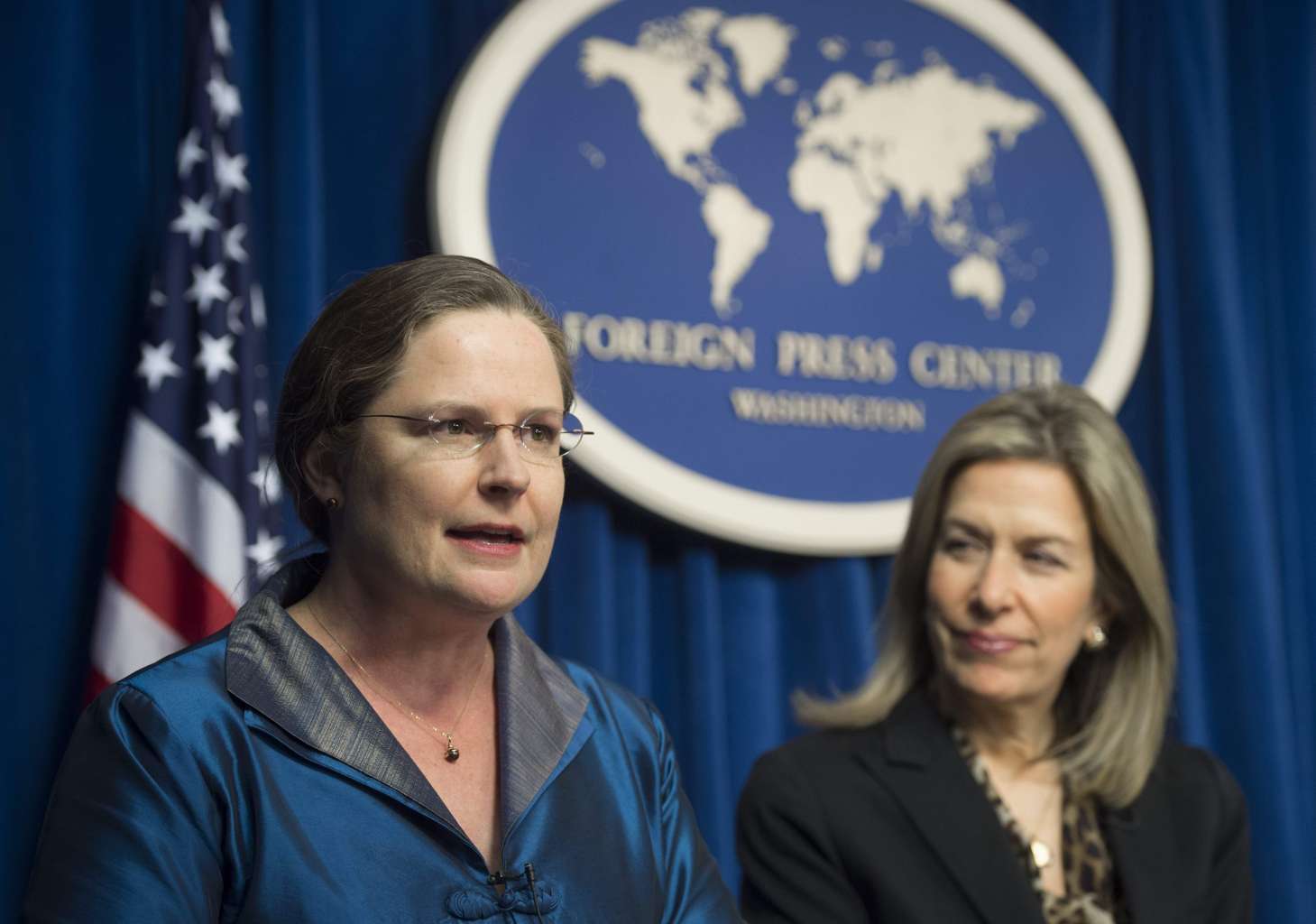ISIS threat raises stakes for US Nuclear Security Summit
Sign up now: Get ST's newsletters delivered to your inbox

Ms Laura Holgate (left), senior director for weapons of mass destruction terrorism and threat reduction at the National Security Council, and Deputy Energy Secretary Elizabeth Sherwood-Randall speaking in Washington, DC on March 29, 2016 about the Nuclear Security Summit.
PHOTO: AFP
Follow topic:
WASHINGTON (AFP) - The spectre of the Islamic State in Iraq and Syria (ISIS) obtaining a "dirty bomb" will loom over a top-level nuclear security summit hosted by President Barack Obama in Washington on Thursday (March 31) and Friday.
Mr Obama welcomes several leaders from countries as diverse as China and Nigeria, as well as representatives from nearly 50 other nations including Singapore, for the summit aimed at elevating the problem of shaky safeguards from the desks of technocrats to the highest corridors of power.
The meeting comes just days after 32 people were killed and 340 were injured in bombings at Brussels airport and the Belgian capital's metro.
The attacks featured conventional explosives, but two of the suicide bombers - Ibrahim and Khalid El Bakraoui - have been linked to possible efforts by ISIS to secure fissile material.
Late last year, the Belgian police investigating the Nov 13 Paris terror attacks found 10 hours of video surveillance detailing the comings and goings of a senior Belgian nuclear official.
Belgian media have since reported that the brothers were linked to the surveillance.
The incident has only heightened existing concerns about ISIS efforts to get nuclear material.
"Having a portion of the discussion that is focused on counter-ISIS is a decision that was made in January," said Ms Laura Holgate, the National Security Council's senior director for weapons of mass destruction, terrorism and threat reduction.
"But it turns out that it is obviously very timely, unfortunately. The video footage is of concern," she said, adding, with regard to the Belgian case, that the United States does not "have any information that a broader plot exists".
But groups like the Islamic State have long shown their interest in obtaining nuclear material.
"We've seen over the years that different terrorist organisations have ambitions related to acquiring nuclear materials," said Deputy National Security Adviser Ben Rhodes.
"We've seen that in their public statements, we've seen that in some cases in their monitoring of nuclear facilities," he added.
"That's why the summit process is so important, because different countries have different levels of security at their facilities or in terms of how they are handling nuclear materials."
Mr Obama personally launched the first head of government-level nuclear security summit in Washington in 2010, after describing nuclear terrorism as the "most immediate and extreme threat to global security".
Subsequent meetings in South Korea and the Netherlands have focused on securing stockpiles, reducing highly enriched uranium and separated plutonium, smuggling detection and cybersecurity.
Few believe ISIS can develop an atomic bomb, but many fear it can acquire uranium or plutonium and construct a "dirty bomb".
Such a device would not trigger a nuclear explosion but would scatter radioactive material - with potentially devastating physiological, medical and economic effects.
Nuclear material can be found in small quantities at universities, hospitals and other facilities the world over, often not well secured.
Since the mid-1990s, almost 2,800 incidents of illicit trafficking, "unauthorised possession" or loss of nuclear materials have been recorded in an International Atomic Energy Agency database.
A US government audit late last year found that Mr Obama's goal of improving the physical protection of more than 43 sensitive buildings and making 34 foreign reactors more "proliferation-resistant" had fallen short.
The International Panel on Fissile Materials, an independent group of arms-control experts, estimated that the global stockpile of highly enriched uranium stood at around 1,370 tonnes at the end of 2014.
Most was held in Russia.
More than 50 heads of state have been invited to attend the summit, but the absence of leaders from Russia, North Korea, Iran and Belarus virtually ensures gaps in the united front.
Mr Rhodes said Russia's decision not to attend at the highest level was a missed opportunity for Moscow, which itself faces significant threats of its own.
Mr Obama leaves office in less than a year, raising questions about whether the initiative will continue without his personal involvement.
"World leaders face a stark choice at the final nuclear security summit later this month: Will they commit to continuous improvement, or will nuclear security efforts stall and potentially decline?" said experts at the respected Belfer Center for Science and International Affairs at Harvard University.
"Their answer will shape the chances that terrorist groups, including the Islamic State, could get their hands on the materials they need to build a crude nuclear bomb."
White House spokesman Josh Earnest said the administration hopes Mr Obama's successor will take up the mantle.
"I certainly hope that the incoming president would understand that safeguarding loose nuclear materials around the globe is a top national security priority of the United States," he said.

